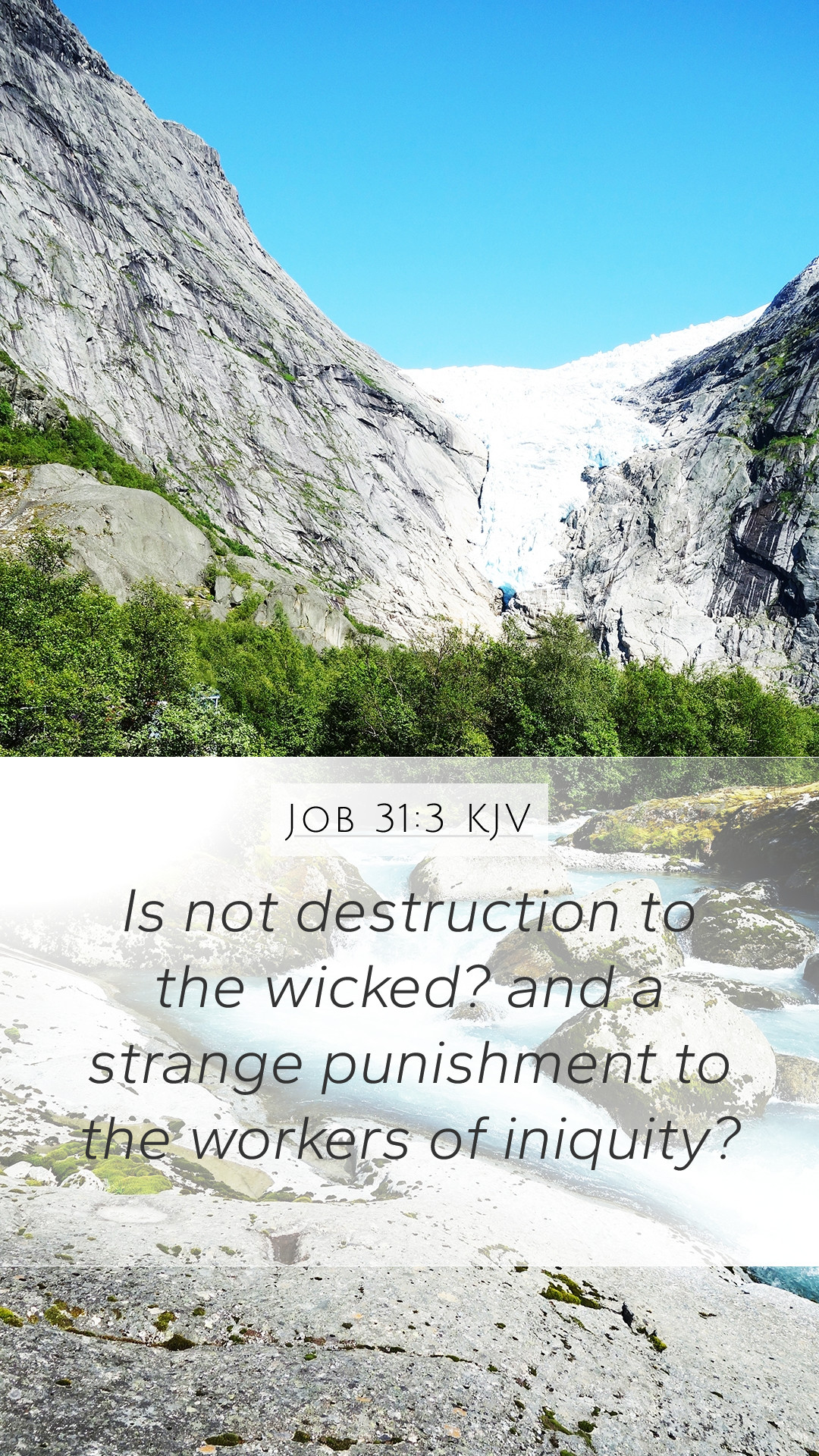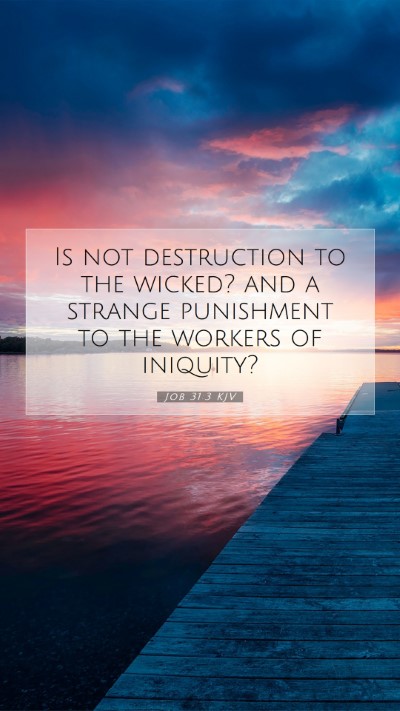Understanding Job 31:3
Job 31:3 reads, "Is there not destruction for the wicked? And does not calamity come upon the unrighteous?" This verse encapsulates a profound inquiry into divine justice and the fate of the wicked, provoking thought among readers regarding the implications of sin and the nature of God’s retribution.
Bible Verse Meanings and Interpretations
The quest to comprehend the meaning of Job 31:3 aligns with the larger themes of the Book of Job, where the protagonist wrestles with the concept of suffering and divine justice. Insights from public domain commentaries bring added depth to our understanding:
Matthew Henry's Commentary
Matthew Henry emphasizes that Job's question regarding "destruction for the wicked" is reflective of a moral order in the universe, where God administers justice. Henry notes that Job, amidst his suffering, places the wicked and the righteous in stark contrast, suggesting that calamity is a natural result of unrighteousness.
Albert Barnes' Analysis
Albert Barnes elaborates on the idea that Job is asserting his innocence and questioning the prevailing thought that calamity is the exclusive domain of the unrighteous. He emphasizes that Job's inquiry serves as a challenge to the traditional understanding of retribution, urging readers to contemplate the realities of suffering in a fallen world.
Adam Clarke's Exegesis
Adam Clarke presents a nuanced interpretation, suggesting that Job's plea reflects his exasperation with the misconceptions about divine justice. Clarke points out that the verse is not only a lament but also a profound interrogation of God’s governance over humanity, asking if the wicked truly face destruction in the present life.
Bible Verse Commentary: Key Themes
- Divine Justice: The verse underscores the belief in ultimate justice meted out by God.
- Moral Order: It highlights the moral framework within which Job believes all actions lead to consequences.
- Personal Innocence: Job’s assertion of his purity questions the simplistic theology that links suffering solely with sin.
- Calamity vs. Righteousness: Job’s rhetorical inquiry invites readers to reflect on the apparent chaos in the world.
Understanding the Context of Job 31
In Job 31, Job is defending his life choices and attempting to justify his integrity in the face of immense suffering. This chapter serves as a culmination of Job's responses to his friends, where he vehemently states his commitment to righteousness, contrasting his fate with that of the unrighteous.
Historical Context
Understanding Scripture requires acknowledgment of the historical backdrop of when Job lived. Job was considered a man of great integrity who faced adversity that challenges the relationship between suffering and piety. The ancient Near Eastern context provides insight into traditional views of retribution, emphasizing the common belief that material prosperity is a sign of divine favor.
Cross References
To enrich the study of Job 31:3, consider exploring the following cross references:
- Psalm 73:17-19 - Discusses the eventual fate of the wicked.
- Proverbs 11:21 - Highlights the certainty that the wicked will not go unpunished.
- Isaiah 3:11 - Similar messages about the consequence of unrighteousness.
- Malachi 4:1 - Prophecies regarding the coming judgment upon the wicked.
- Romans 2:6-8 - Discusses God's judgment according to works.
Applying Job 31:3 to Daily Life
In practical application, the exploration of Job 31:3 can lead to profound introspection about personal conduct, the nature of suffering, and the pursuit of righteousness. Reflecting on this verse encourages believers to consider the broader implications of their actions and the eventual consequences of living a righteous life amidst a world filled with moral ambiguity.
Conclusion
Job 31:3 poses critical questions about divine justice and the fate of the unrighteous. The insights from numerous commentaries provide a rich tapestry of interpretations that can enhance our understanding of Scripture, fostering discussions in bible study groups and offering material for online Bible study. This verse, while significant in its own right, opens the door to broader scriptural themes regarding the nature of justice, integrity, and the complexities of human suffering.


